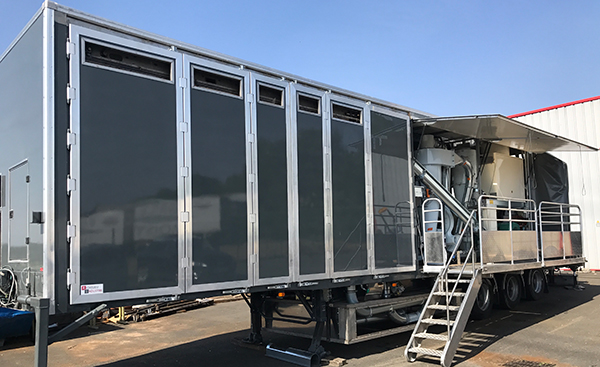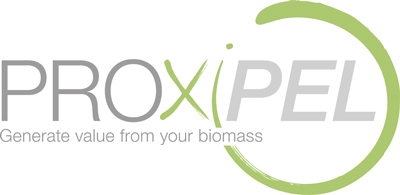CONCEPT
MOBILITY
+
ABILITY TO VALORISE DIFFERENT TYPE OF BIOMASSES
+
ABILITY TO PELLETISE WET BIOMASS
+
LOW ENVIRONMENTAL IMPACT
+
COMPETITIVE PELLET COST PRICE
=
PROXIPEL
Proxipel units can transform different types of woody biomass into pellets. Thanks to its mobility, Proxipel also makes it possible to pelletize biomass available in small, scattered volumes, which is often too expensive to collect to be processed in centralized plants.
By moving and transforming biomass in situ, Proxipel makes it possible to recover biomass that would not otherwise be, while reducing the environmental impacts associated with its transformation. The pellets manufactured by Proxipel comply with the ISO 17225 standard, a European reference.

Main advantages of Proxipel
- Ability to valorise dispersed biomass,
- Ability to pelletise wet biomass,
- Great operational flexibility,
- Possibility of selling the pellets in situ to biomass suppliers,
- No capital investment in land,
- No building permit required,
- Few administrative barriers,
- Reduced environmental footprint compared to other uses of biomass.
Reduction of environmental impacts
Compared to other biomass waste recovery options, Proxipel offers net environmental advantages for most of the Life Cycle Analysis (LCA) indicators if the fuel used to power the unit is diesel.
Environmental advantages of a burner using Proxipel pellets compared to other heating systems:
| Oil heating | Gas Heating | Heat Pump | |
|---|---|---|---|
| Greenhouse Gas |
+ | + | =/+ |
| Human health |
= | =/- | = |
| Ecosystems quality |
=/+ | =/- | =/+ |
| Depletion of ressources |
+ | + | + |
= : impact of the same order of magnitude
+ : Proxipel Proxipel has an environmental impact approximately 10x lower
- : Proxipel has an environmental impact approximately 10x greater
In addition, Proxipel reduces greenhouse gas emissions from the production of pellets by a factor of 4.
Proxipel units can also run on biodiesel. In this case, the indicators are even more in favor of Proxipel.








